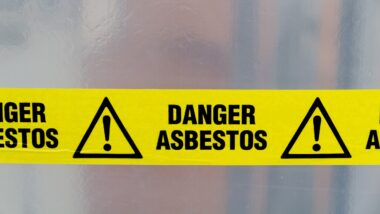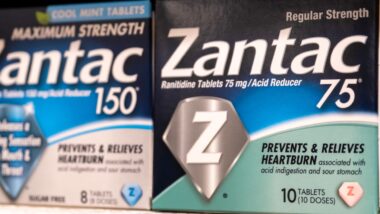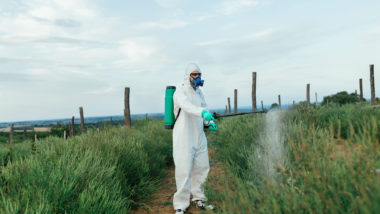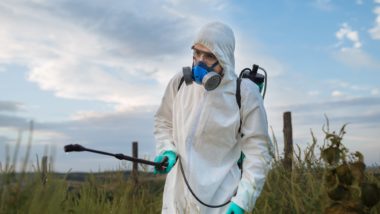The Center for Food Safety (CFS) and several other non-profits urged the U.S. Court of Appeals for the 9th Circuit to vacate the EPA’s re-approval of glyphosate, the active ingredient in Roundup, due to its alleged adverse health effects in humans and on the environment.
CFS filed its opening arguments on Dec. 17 after filing the lawsuit in March 2020 following the EPA’s re-approval of glyphosate in January 2020.
“The reckoning for Roundup has come,” George Kimbrell, Legal Director for the CFS told Top Class Actions. “Our case represents the health and environmental harms that this product has and is causing, and the EPA’s unlawful approval of it despite those harms.
“Our goal is to get the registration declared unlawful and set aside, which would make the product unlawful to sell or use,” Kimbrell added.
CFS is challenging the re-approval along with the Rural Coalition, Organizacion en California de Lideres Campesinas, Farmworker Association of Florida, Beyond Pesticides, and the National Resources Defense Council. The groups are collectively representing farmworkers, farmers, and conservationists.
Glyphosate has been linked to severe adverse side effects such as leukemia and non-Hodgkin lymphoma in studies and has been the subject of lawsuits filed by Roundup users who allege that their cancer diagnosis is linked to Roundup use.
Glyphosate is said to be the most widely used pesticide in the U.S. Roundup is sprayed on 285 million acres of farmland annually, and 21 million pounds are used in parks, schoolyards, forests, roadways, and on residential lawns, as referenced in the CFS’s opening argument,
Congress requires the safety of pesticides to be reassessed every 15 years by the EPA under the Federal Insecticide, Fungicide, and Rodenticide Act (FIFRA).
CFS asserts that since the use of the product increased considerably since the last review — and evidence emerged demonstrating serious health effects — the safety of the product should have been carefully analyzed.
“Rather than rigorously assess the registration based on current science, EPA rubber-stamped Monsanto’s assurance of safety, contrary to its statutory duties,” CFS alleges in its argument to the Ninth Circuit.
Following a review that the EPA conducted over the course of several years, the agency concluded in December 2017 that glyphosate is “not likely to be carcinogenic to humans.”
CFS also says that the EPA’s final determination is “at odds with EPA’s own prior determination that glyphosate is a possible carcinogen,” and that in 2015 the World Health Organization designated the herbicide as “probably carcinogenic to humans.”
Although the EPA maintains that there are no substantial health risks associated with glyphosate, there have been several notable Roundup lawsuits in which juries have found enough evidence linking a plaintiff’s cancer to their use of the product, returning verdicts in the millions.
In June 2020, Bayer — which acquired Monsanto in 2018 — reached a settlement of more than $10 billion to resolve a series of Roundup lawsuits.
 Roundup Puts Wildlife and Endangered Species at Risk, CFS Claims
Roundup Puts Wildlife and Endangered Species at Risk, CFS Claims
The CFS lawsuit not only alleges the potential adverse health effects Roundup can cause in humans but draws attention to another potential issue — the possibility that glyphosate may also jeopardize protected species.
The non-profit argues in its brief that the EPA reregistered the herbicide without first consulting with wildlife experts, alleging that the agency committed a “flagrant violation” of the Endangered Species Act.
The EPA issued a late evaluation which determined that all of the 1,795 endangered species exposed to the chemical could be affected by it, with 93% likely to “experience adverse effects,” the lawsuit says.
One of the species CFS claims is threatened by glyphosate is the Monarch butterfly. The Monarch butterfly population has reportedly dramatically declined over the last two decades, during the time that “glyphosate use has exponentially grown,” the CFS says in its brief.
CFS also argues that labeling cannot effectively mitigate glyphosate’s potential health risks as it cannot slow the development of glyphosate-resistant weeds, which has played a role in the increased usage of Roundup.
The EPA’s “non-target organism advisory” alerting that the product may be toxic to plants, pollinators, and other organisms are insufficient, the organization adds.
While the advisory instructs glyphosate users to “minimize spray drift,” CFS contends that “it is entirely unclear how this ‘mitigation measure’ will do anything at all to protect the thousands of wild species at risk of harm from glyphosate use.”
The Roundup Lawsuit is Rural Coalition, et al. v. U.S. Environmental Protection Agency, et al., Case No. 20-70787 and Natural Resources Defense Council, et al. v. U.S. Environmental Protection Agency, et al. Case No. 20-70801 in the U.S. Court of Appeals for the 9th Circuit.
ATTORNEY ADVERTISING
Top Class Actions is a Proud Member of the American Bar Association
LEGAL INFORMATION IS NOT LEGAL ADVICE
Top Class Actions Legal Statement
©2008 – 2024 Top Class Actions® LLC
Various Trademarks held by their respective owners
This website is not intended for viewing or usage by European Union citizens.
Get Help – It’s Free
Join a Roundup Weed Killer Cancer Class Action Lawsuit Investigation
For the most up-to-date information on this case, click here.


 Roundup Puts Wildlife and Endangered Species at Risk, CFS Claims
Roundup Puts Wildlife and Endangered Species at Risk, CFS Claims










